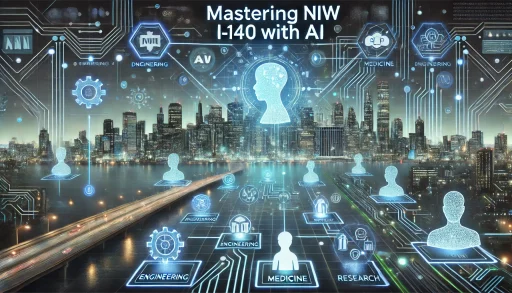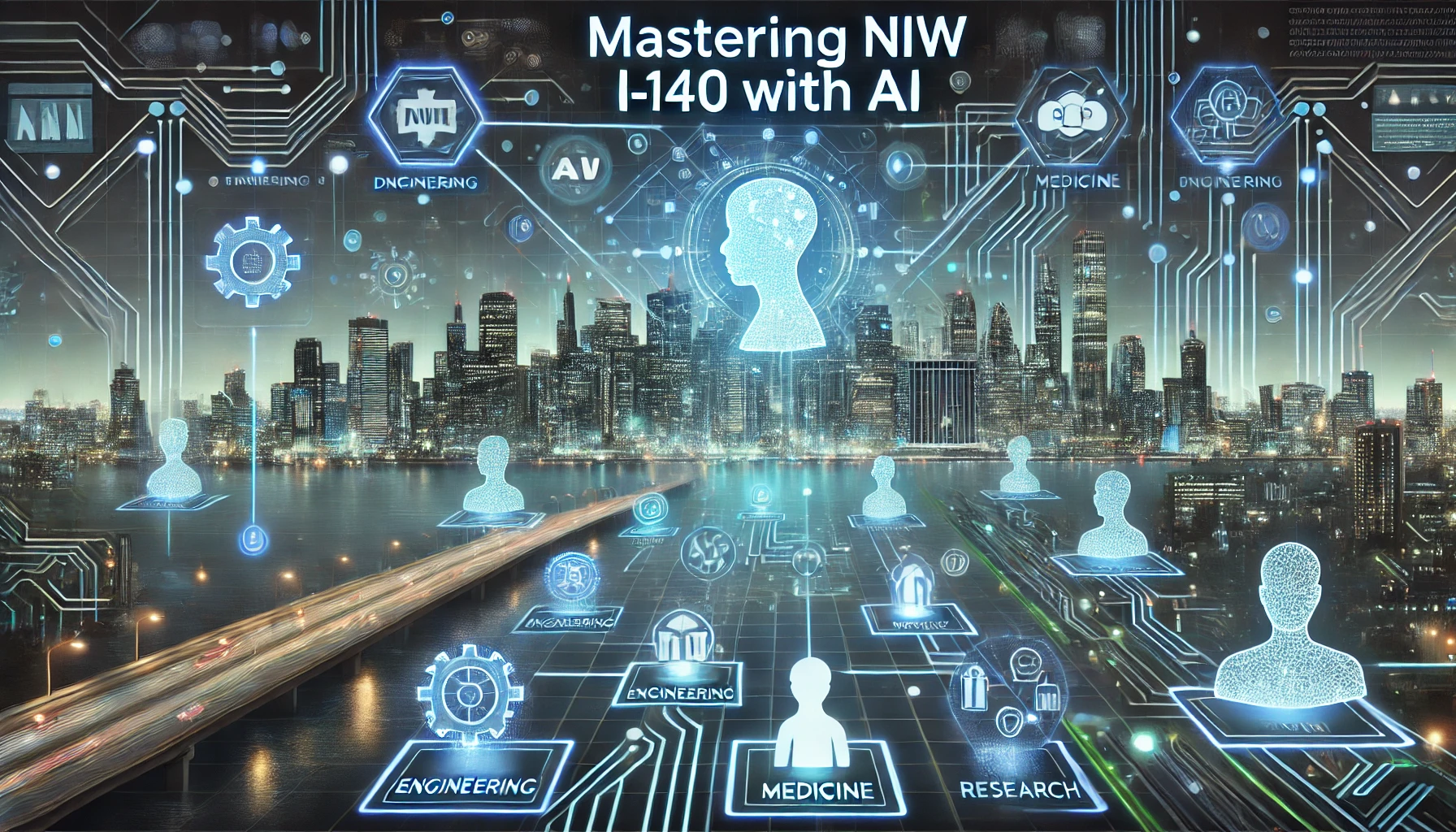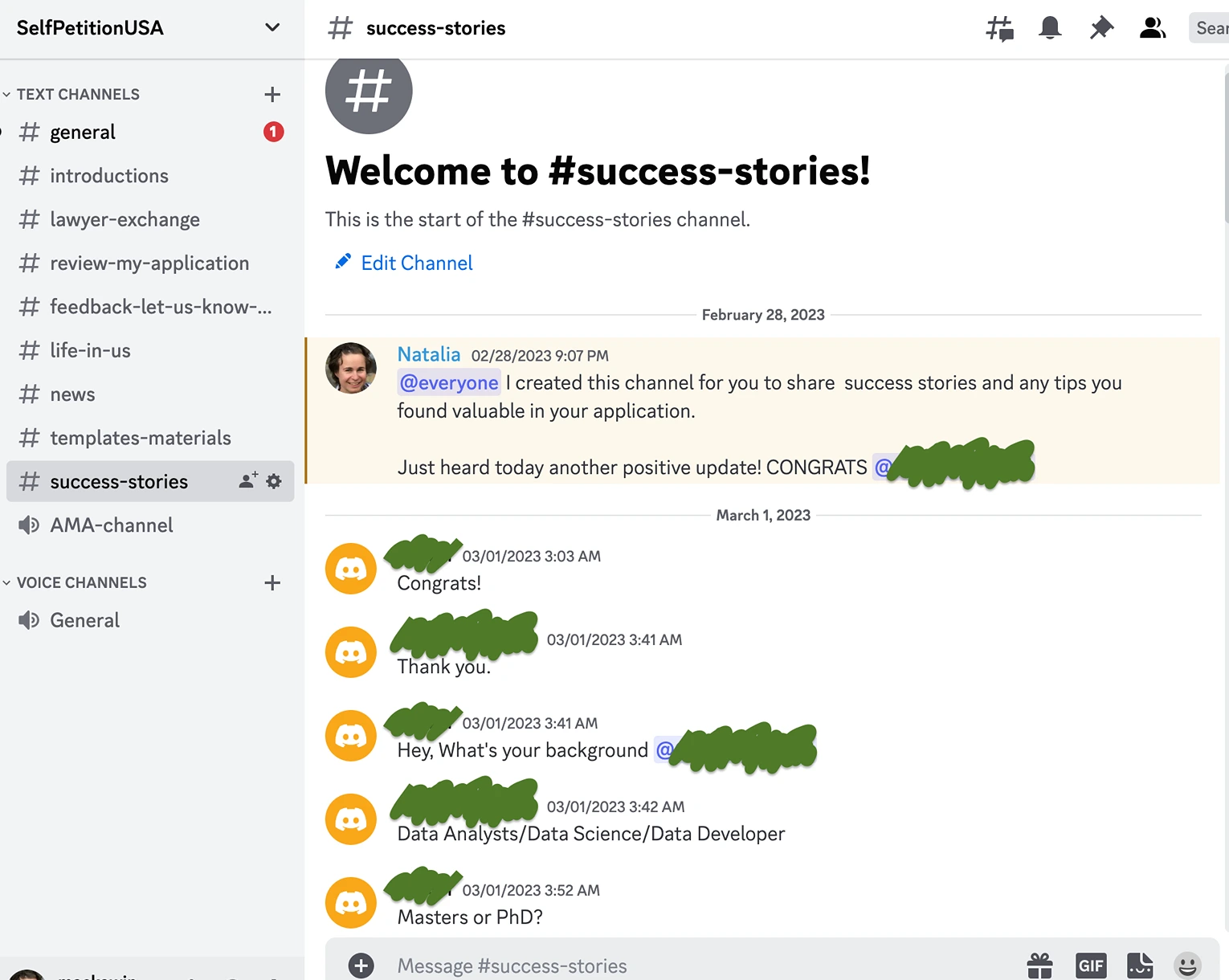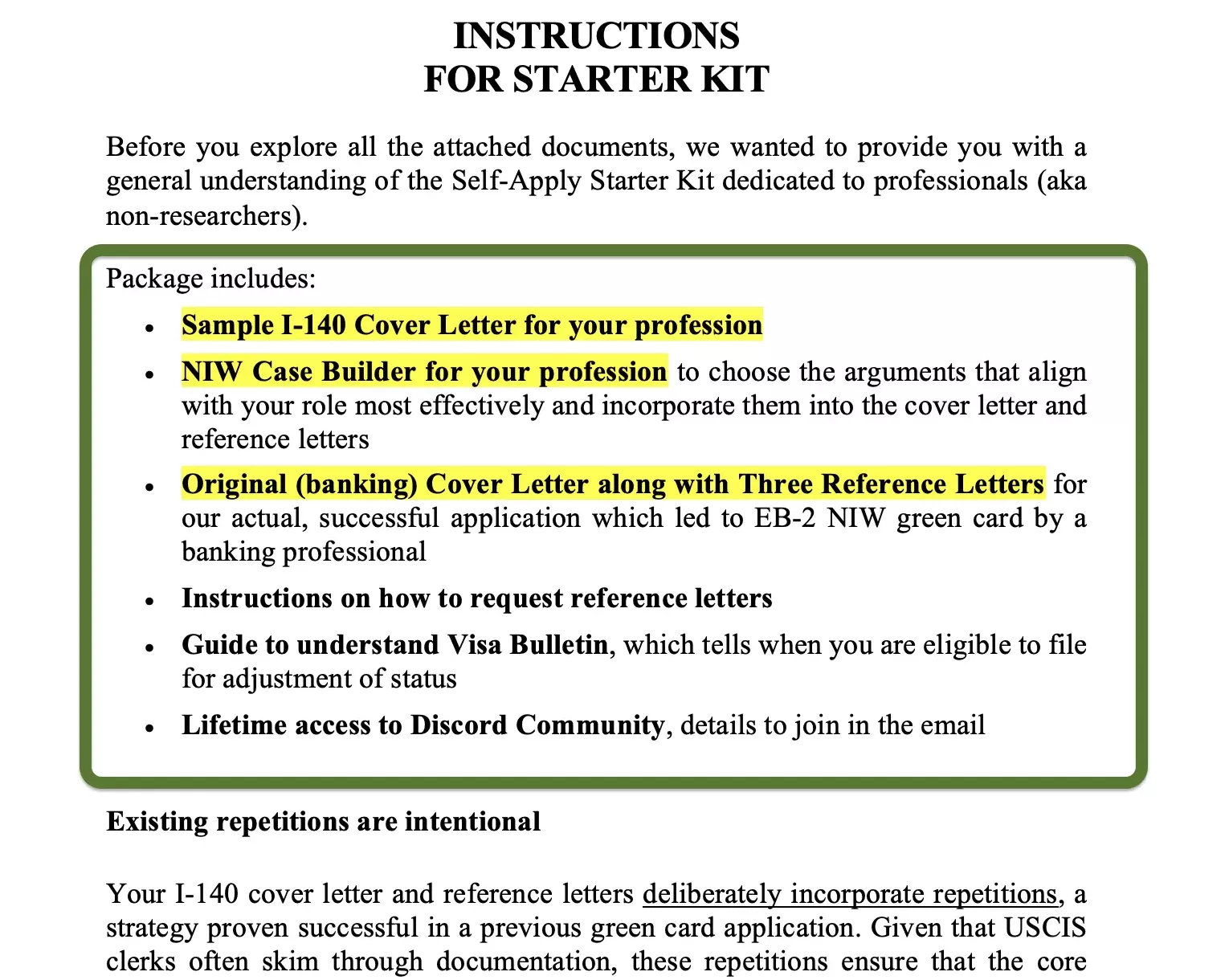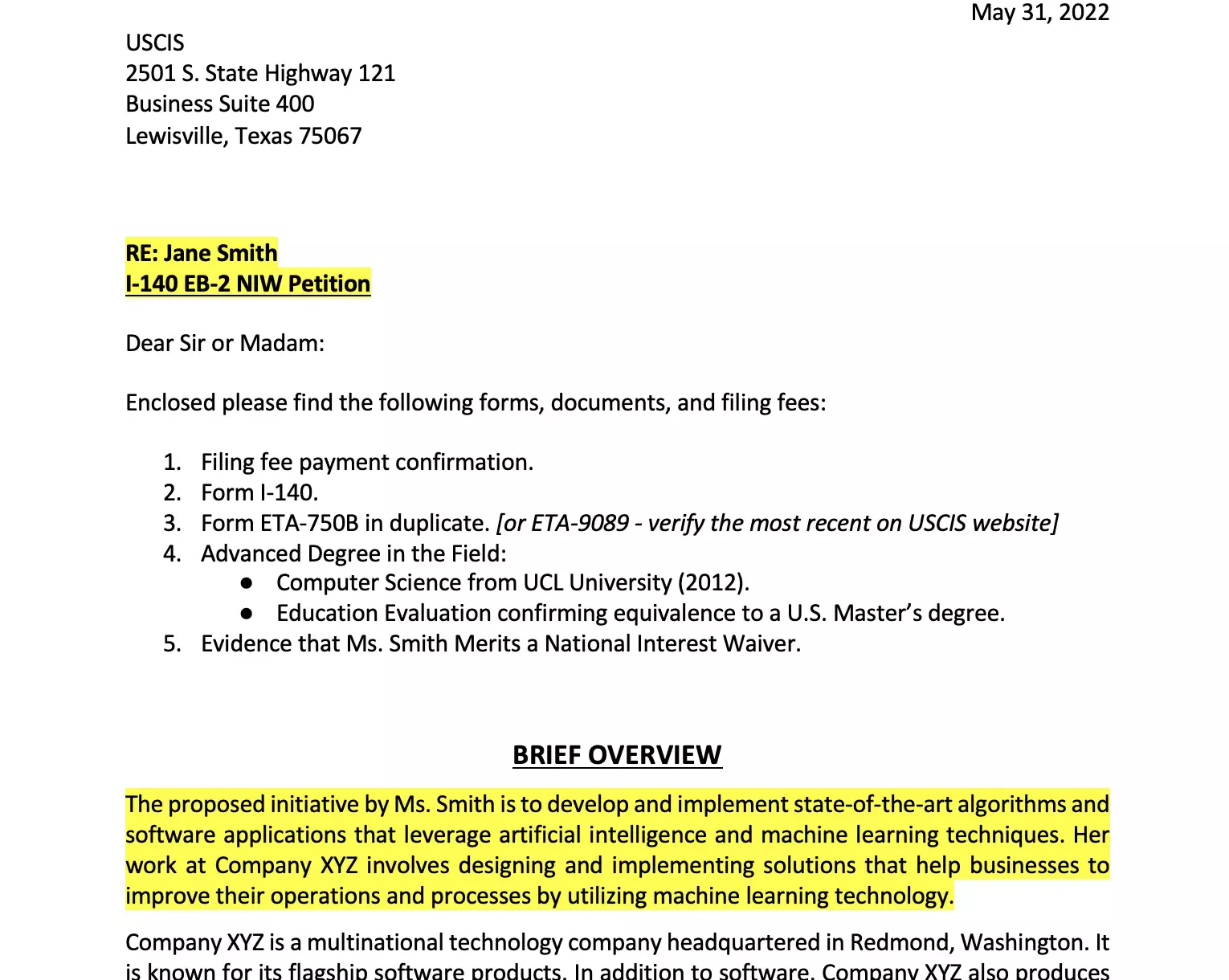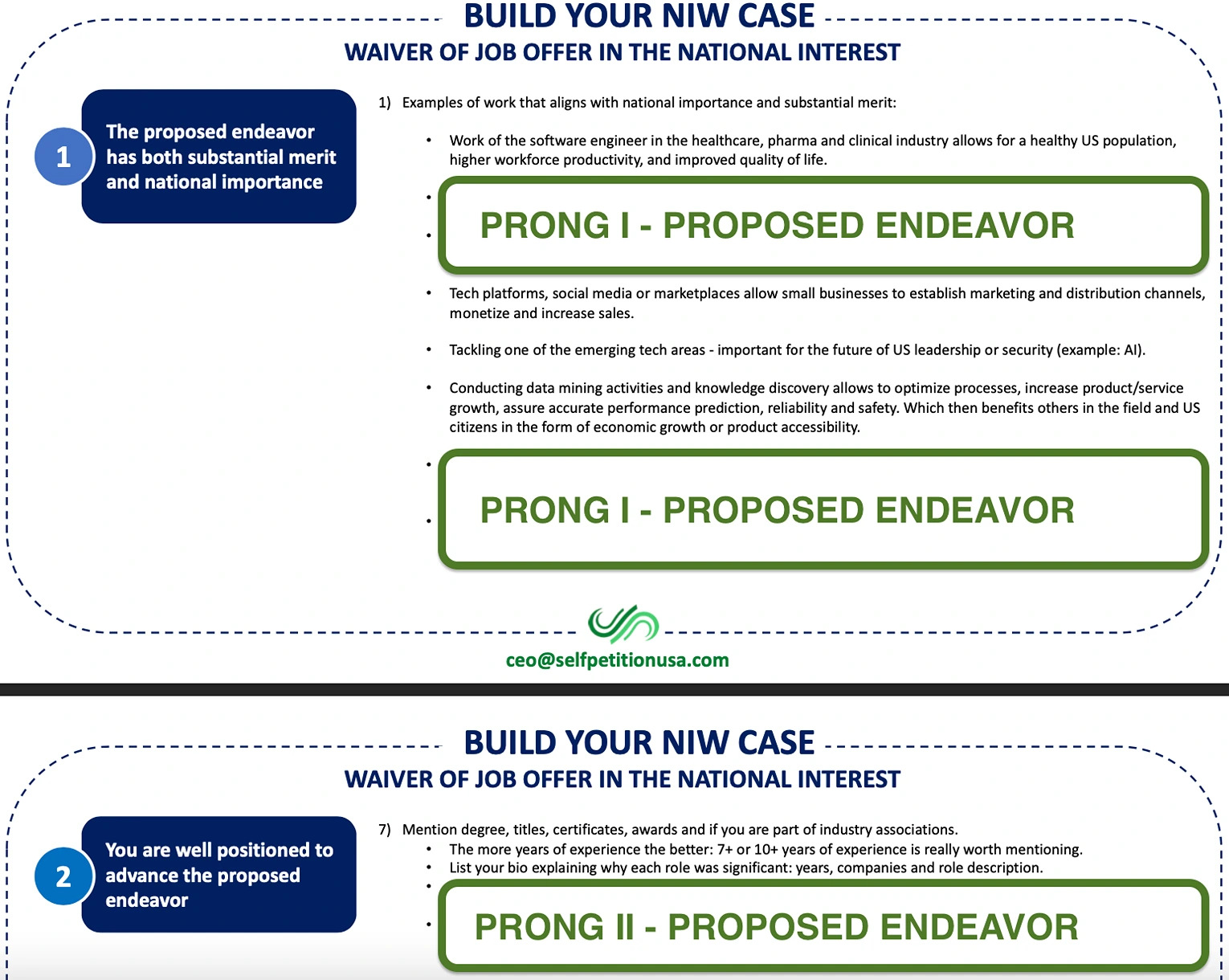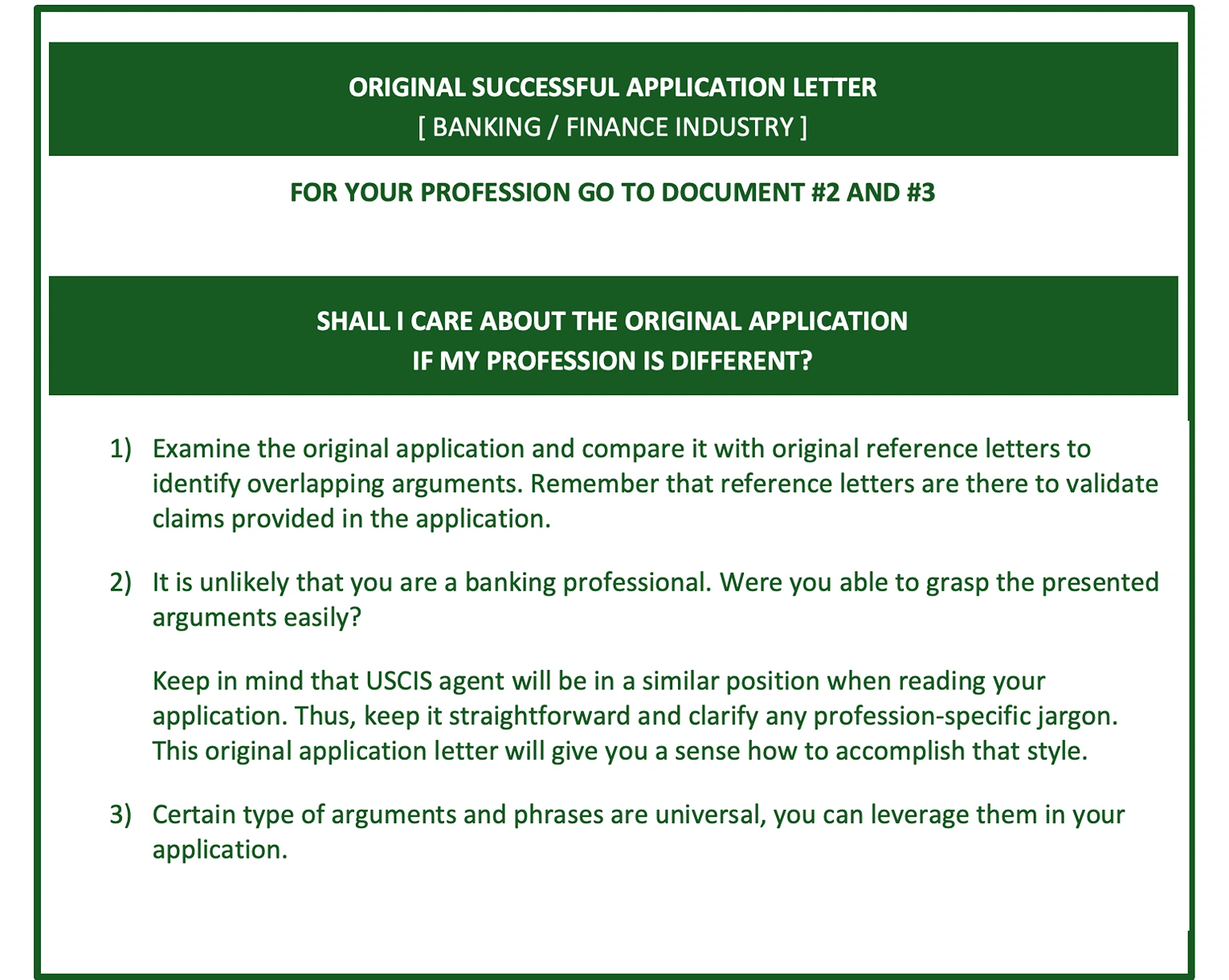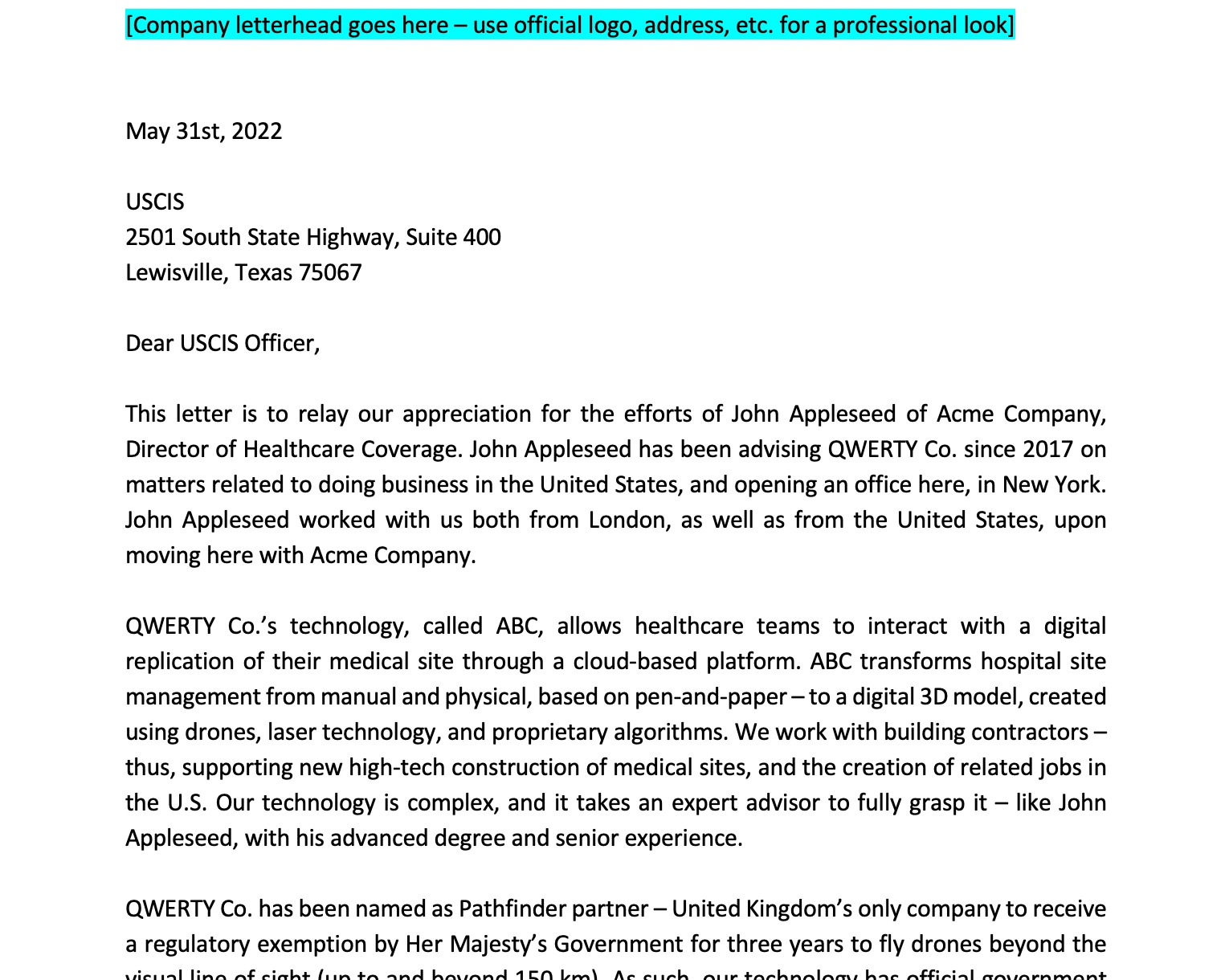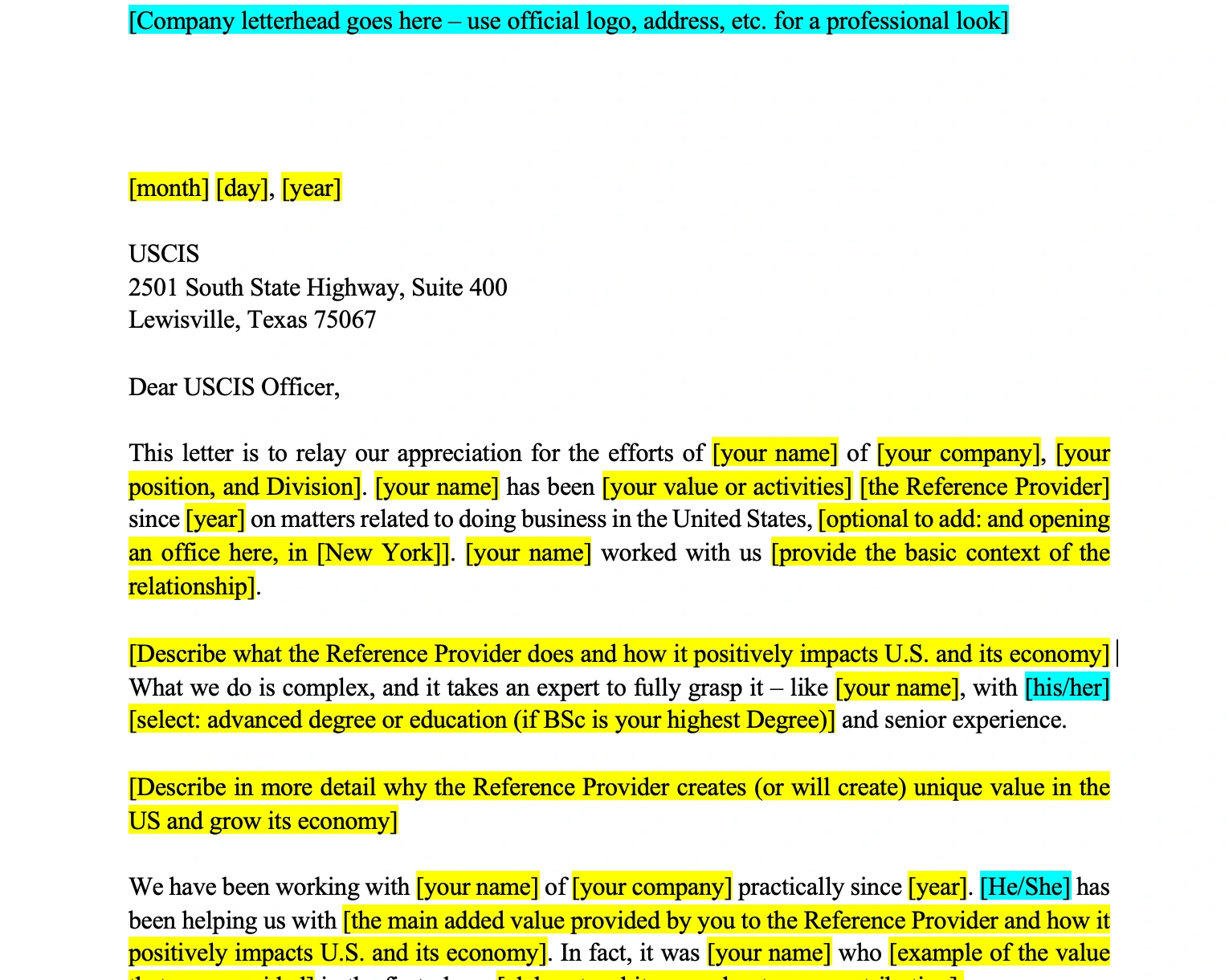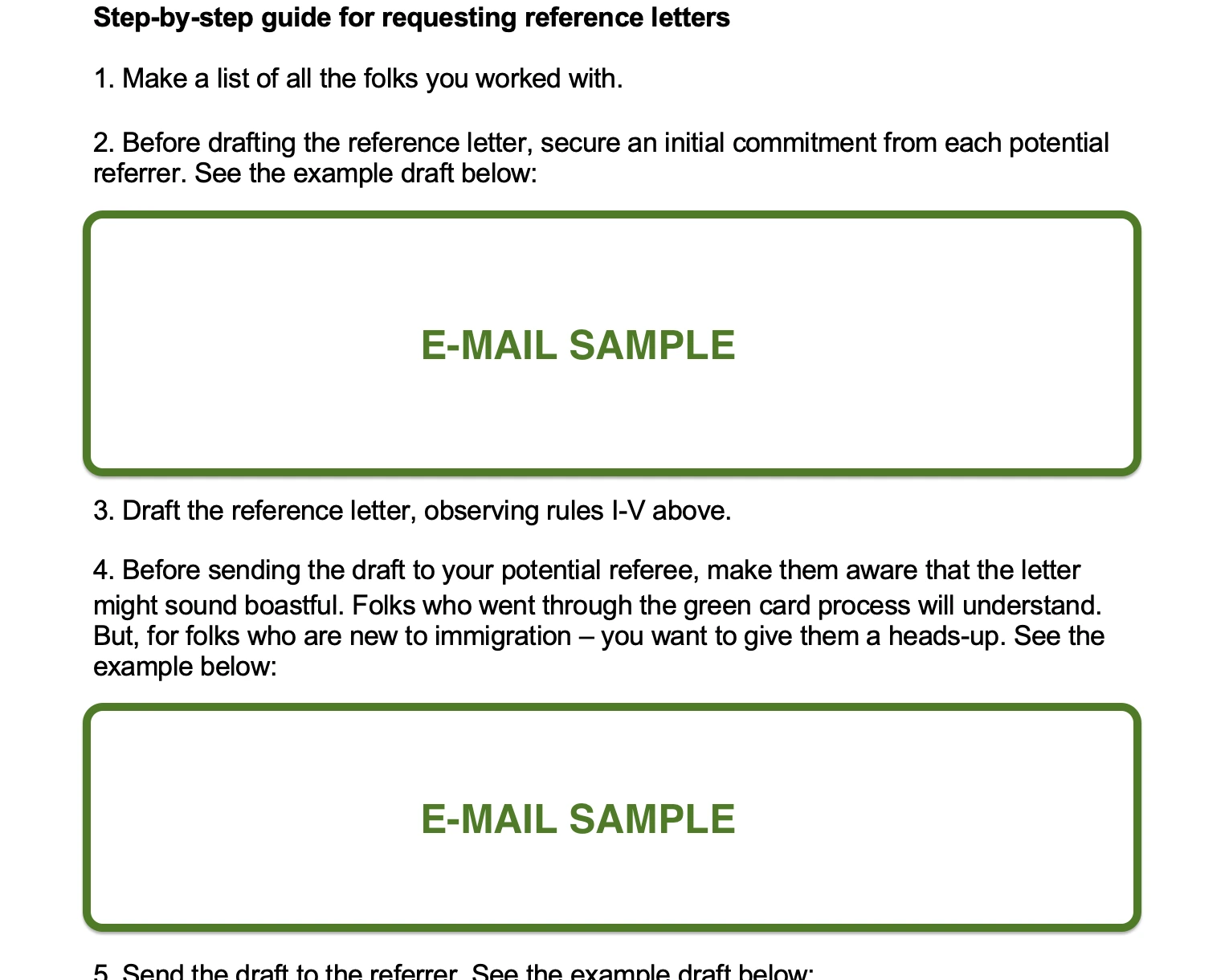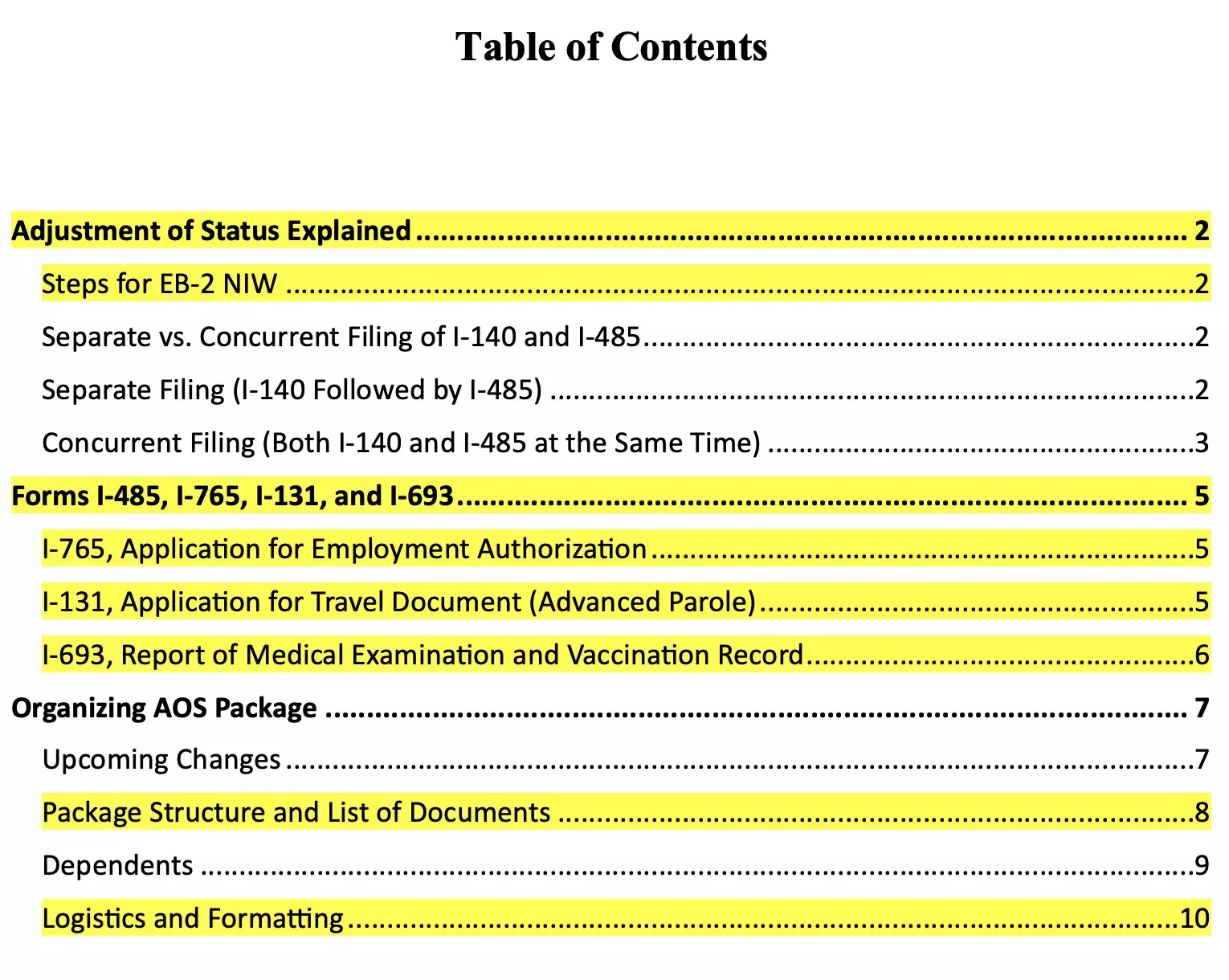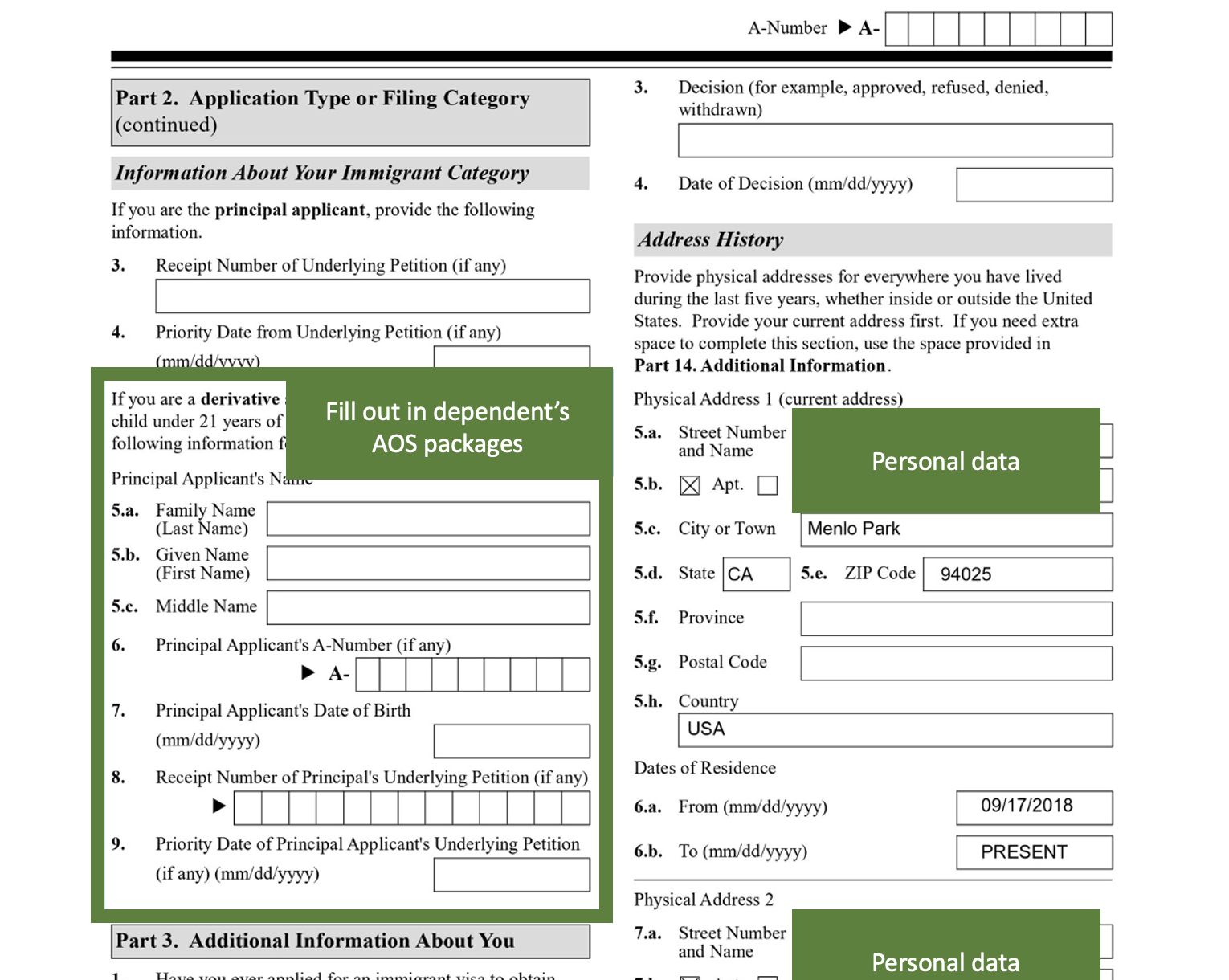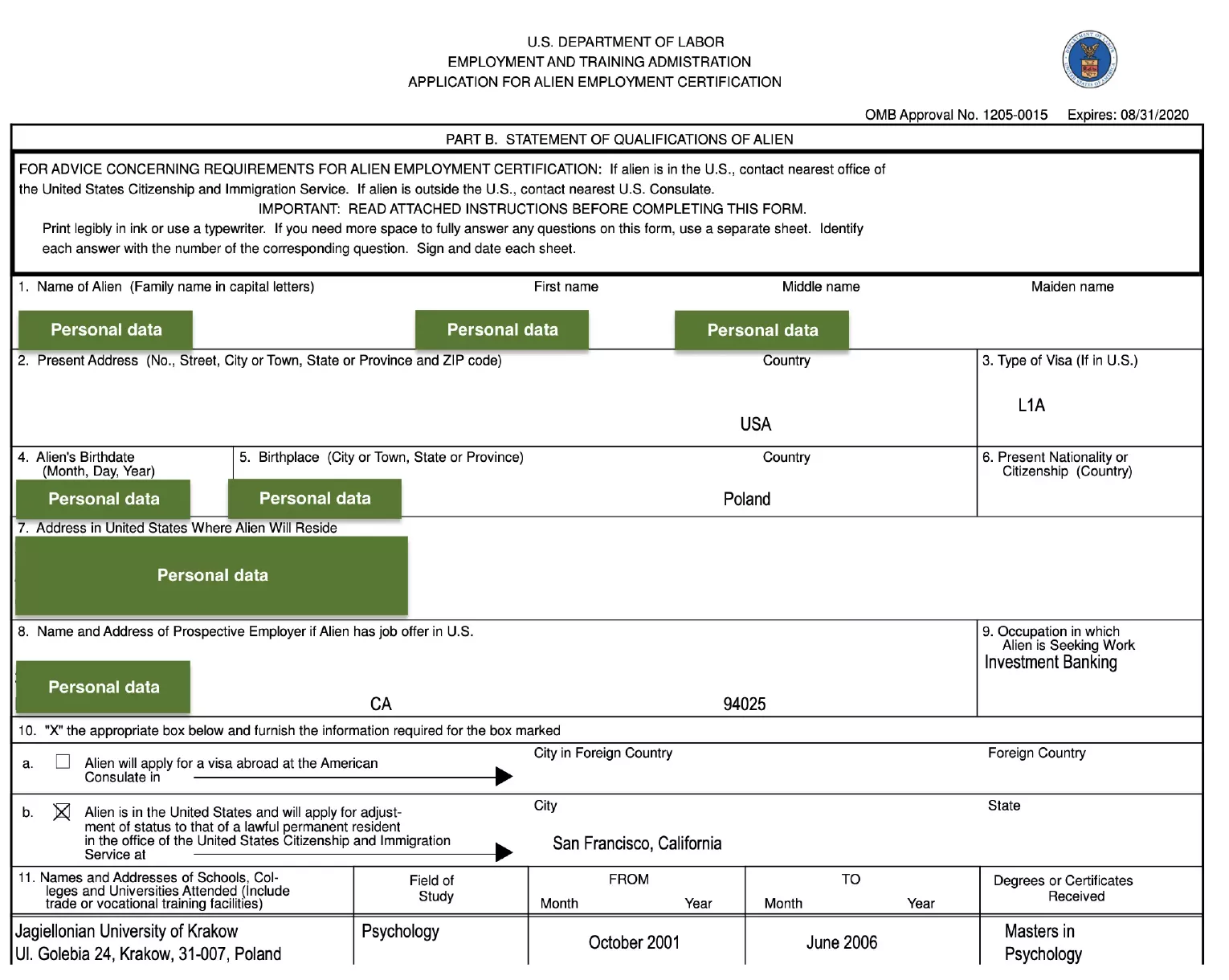NIW I-140 petition
A primary reason USCIS issues an RFE for an NIW I-140 petition is not clearly proving national importance. We know this because we have looked at many Requests for Evidence (RFEs) and Administrative Appeals Office decisions (AAO). Petitioners came to us after their first filing was not successful, whether they had lawyers or filed on their own.
We have also trained our Selfpetition AI model on AAO non precedent decisions. This helped us understand what USCIS looks for when they evaluate substantial merit and national importance.
Proving substantial merit is easier for petitioners. However, the first common mistake many repeat is claiming their work benefits an entire industry when explaining national importance. Instead, they should focus on their individual impact.
Moreover, petitioners and lawyers also make vague claims about the petitioner while they should clearly state the specific contributions. Such broad framing is the second most common reason that leads to a NIW RFE.
USCIS does not consider an industry’s overall importance, as that falls under the green card PERM process. They focus on how your actions can help national interests and what impact you will have as an individual. Suggesting that a single person can transform an entire industry is not realistic. Regardless of your credentials, USCIS will recognize this flaw.
If you are unsure whether your petition falls into this trap, ask yourself: Is the impact I described a result of my actions? If the answer is no, you need to make your arguments more specific. If your petition is too broad and could fit many professionals, refine it to highlight your unique impact.
To highlight these subtle differences, we will compare three scenarios. First, we will look at two flawed narratives that often result in RFEs. Then, we will examine the method used by Selfpetition AI to create successful petitions.
Applying the right technique will significantly strengthen your case and increase chances of EB2 NIW approval in 2025. If you think Selfpetition AI is just another basic tool, request a sample I-140 petition. Then, compare it to outputs from ChatGPT, Gemini, or Claude (Anthropic) to see the difference.
Consider three ways of describing national importance related to EV charging systems. The petitioner plans to create software for electric vehicle (EV) charging and battery management to stop grid overload. Optimizing energy use and avoiding costly hardware upgrades benefits cities and homeowners.
Option-1: Claims to solve entire nationwide infrastructure problem
Incorrect (triggers NIW RFE)
Why this is NOT correct: Below statements do not center on the petitioner’s individual contributions. Instead, petitioner suggests cutting huge infrastructure costs equal to the impact of the entire EV industry upgrade. This claim is unrealistic and may raise concerns with USCIS.
“Creating a safe and reliable way to charge electric vehicles at home is important. It helps lower the chances of electrical fires and accidents. This protects lives and property. The U.S. must invest around $150 billion annually to upgrade the power grid, while home circuit upgrades range from $700 to $20,000.
Smart logics as proposed above provide economic efficiency by reducing infrastructure and grid update costs. It also increases customer confidence and electric vehicle usability. These benefits support national goals for safety, economic growth, energy security, and environmental responsibility.”
Option-2: Emphasizes the industry’s significance rather than the specific impact of the petitioner’s planned actions
Incorrect (triggers NIW RFE)
Why this is NOT correct: This version fails to outline the petitioner’s specific actions in addressing the issue. Instead, it highlights the problem and the field’s importance but does not show how the petitioner’s work will directly solve it.
“The fast growth of electric vehicles (EVs) poses a major challenge to the U.S. power grid. As charging demand rises, it could lead to grid overload and expensive upgrades. To maintain grid stability, we need smart charging solutions that balance energy use and reduce peak demand. These advancements can prevent blackouts, lower costs for utility companies, and improve energy efficiency, supporting national goals for grid improvements and energy security.”
Option-3: Focused on the petitioner’s future actions and their specific impact
Correct
(Note: we removed identifying details from the Selfpetition AI output generated for a client)
USCIS denied the NIW I-140 petitions in Option-1 and Option-2 because they focused on the industry rather than explaining the petitioner’s specific work. It made broad claims about solving a national problem without proving the petitioner’s direct impact.
After the denial, the petitioner used Selfpetition AI to refine the arguments. The revised petition focused on the petitioner’s specific actions, the broader impact beyond their employer, and measurable results. It clearly explained how their work prevents grid overload, optimizes energy use, and cuts infrastructure costs with measurable benefits. This approach greatly improved the EB2 NIW approval rate.
“Petitioner’s endeavor will have a broader impact beyond the immediate benefits to their employer or EV consumers. By addressing the pressing challenge of grid strain associated with increased EV adoption, the petitioner’s solutions mitigate the need for costly infrastructure upgrades, benefiting municipalities, utility companies, and consumers alike.
Studies estimate that upgrading the U.S. grid to accommodate increased EV adoption could cost between $125 billion and $200 billion and that there will be 50 million EVs on the road by 2035. Using these numbers, a conservative cost estimate of $150 billion (taken from the $125-200 billion range) divided by 50 million EVs results in $3,000 per EV. By 2035, it is projected that [X] EVs will implement the petitioner’s solutions, resulting in societal savings of approximately [X * $3,000] dollars.
Additionally, the petitioner’s innovations in diagnostics and safety protocols, such as algorithms to prevent outlet arcing during Level 1 AC charging—a common household charging method—enhance safety for EV consumers and their property by reducing the risk of electrical fires caused by aging or faulty outlets.
Without these solutions, homeowners could face costs ranging from $700 to $20,000 to upgrade their home circuits, depending on their age and condition. By enabling vehicles to safely adapt to varying outlet conditions, the petitioner’s solution has already been implemented in approximately [X] EVs, collectively saving U.S. homeowners an estimated [$X billions] in potential circuit upgrade costs (calculated as an average savings of $10,350 per household, multiplied by [X] vehicles).
As adoption scales further, with projections of [X] equipped vehicles in 2025 and [X] in 2026, these savings could grow to approximately [$X billions] over the next few years. This not only significantly reduces the financial burden on EV consumers but also enhances safety for them and their communities by lowering risks of electrical fires and easing the strain on local firefighting resources caused by electrical overloads.”
Proven tactics for making NIW national importance case stand out
To get I-140 NIW approved, show how your actions will solve a national problem with clear, measurable impact. Focus on what you will do and the results your work will create, rather than making broad claims about your field. Avoid general industry statements and instead highlight exactly how your work solves a problem and benefits the national interests.
A strong national importance argument can increase your chances of EB2 NIW approval in 2025 and help you avoid the RFE.
Looking for a strong EB2 NIW petition? Try Selfpetition AI. Our tool customizes petitions to fit your background and USCIS standards. It analyzes past AAO decisions to identify common mistakes and optimize your petition for success.
Click HERE for details or request I-140 petition samples to compare it with other AI tools like ChatGPT.
